
All categories
Featured selections
Trade Assurance
Buyer Central
Help Center
Get the app
Become a supplier

(25734 products available)







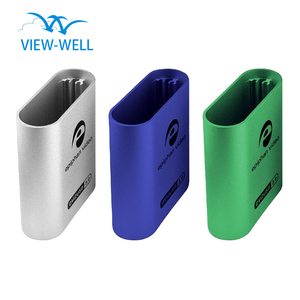















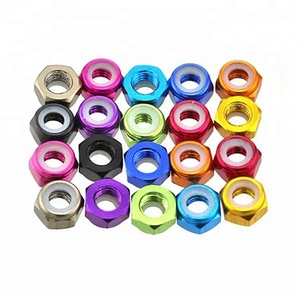

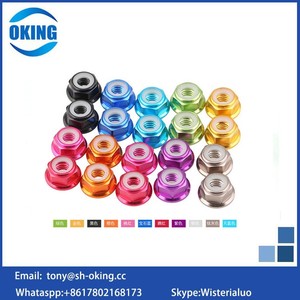


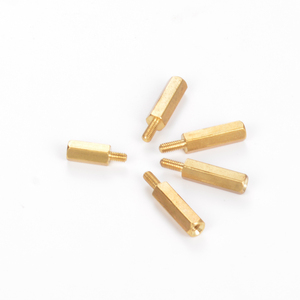

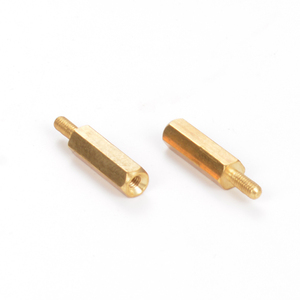

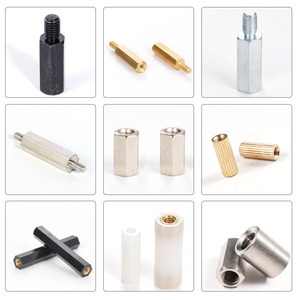





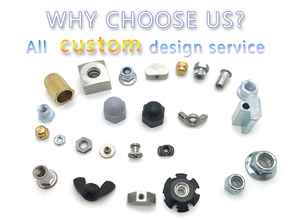






stamping nuts custom made are essential components in the world of fasteners, serving a critical role in various applications across numerous industries. These small but mighty pieces are used to secure two or more parts together, ensuring stability and preventing unwanted movement. Typically made from durable materials such as steel, brass, or nylon, stamping nuts custom made come in different sizes and shapes to accommodate a wide range of projects. Their versatility and reliability make them indispensable in construction, automotive, and machinery sectors. As technology advances, the design and functionality of stamping nuts custom made continue to evolve, offering enhanced performance and efficiency.
The variety of stamping nuts custom made available on the market is extensive, each designed to meet specific needs. Common types include hex nuts, wing nuts, and lock nuts. Hex nuts, characterized by their hexagonal shape, are the most popular and are used in conjunction with bolts for secure fastening. Wing nuts, with protruding wings, allow for easy hand tightening and are ideal for applications requiring frequent adjustments. Lock nuts are designed to prevent loosening under vibration or torque, making them perfect for machinery and automotive use. Each type of stamping nuts custom made provides unique advantages, ensuring optimal performance for its intended application.
stamping nuts custom made offer a range of functionalities that make them indispensable in fastening applications. They provide a secure hold, preventing parts from shifting or separating, which is crucial in maintaining structural integrity. Features such as self-locking mechanisms and corrosion-resistant coatings enhance durability and longevity. Self-locking nuts incorporate a nylon insert or a distorted thread to resist loosening, while corrosion-resistant coatings protect against environmental factors that could lead to degradation. The precision engineering of stamping nuts custom made ensures a snug fit and reliable performance, which is particularly important in high-stress environments.
The production of stamping nuts custom made involves the use of various materials, each selected for its specific properties. Steel is the most common material, known for its strength and resilience, making it ideal for heavy-duty applications. Brass offers excellent corrosion resistance and is often used in plumbing and electrical work. Nylon provides a lightweight and non-conductive option, suitable for applications where metal contact is undesirable. The choice of material impacts the nut's strength, temperature resistance, and suitability for specific environments. Advances in material science have led to the development of composite and alloy stamping nuts custom made, offering enhanced performance characteristics.
Using stamping nuts custom made effectively involves selecting the right type and size for the task at hand. Ensure that the nut matches the corresponding bolt or screw in terms of thread diameter and pitch for a secure fit. Tighten the nut using appropriate tools, such as wrenches or pliers, to achieve the desired torque without over-tightening, which can cause damage. In applications subject to vibration, consider using lock nuts to prevent loosening. Regular inspection and maintenance of stamping nuts custom made are crucial to ensure continued reliability and safety. In industrial settings, adhering to specifications and standards is essential for optimal performance and compliance.
When selecting stamping nuts custom made for your specific application, it's essential to consider several factors. The first step is understanding the load requirements and environmental conditions where the fasteners will be used. For instance, if the application involves exposure to moisture or corrosive elements, opting for stainless steel or brass stamping nuts custom made can provide better resistance against rust and corrosion. Additionally, the type of load—whether tensile or shear—will influence the choice of stamping nuts custom made, as certain designs and materials offer better performance under specific load conditions.
The thread type and pitch are also crucial in selecting the appropriate stamping nuts custom made. Coarse threads are generally used in softer materials and are beneficial for quick assembly, while fine threads provide a more secure hold in harder materials. Understanding the application’s specific torque requirements can also guide the choice of stamping nuts custom made. For high-vibration environments, lock nuts with nylon inserts or other locking mechanisms may be necessary to ensure the fasteners remain secure over time.
The choice of material for stamping nuts custom made affects its strength, durability, and resistance to environmental factors. Steel is commonly used for its strength and cost-effectiveness, while brass and stainless steel offer enhanced corrosion resistance. Nylon is chosen for its non-conductive properties and lightweight nature, making it suitable for electrical applications.
Determining the correct size of stamping nuts custom made involves matching the thread diameter and pitch with that of the corresponding bolt or screw. It's important to consult the specifications of the components being fastened to ensure compatibility. Using a thread gauge or reference chart can aid in selecting the right size.
Whether stamping nuts custom made can be reused depends on its condition after disassembly. If the threads remain intact and undamaged, they may be reused. However, for critical applications or those involving high stress, it's often recommended to use new fasteners to ensure maximum reliability and safety.
Self-locking stamping nuts custom made offer the advantage of resisting loosening due to vibration or torque. They incorporate features such as nylon inserts or distorted threads that provide additional friction, reducing the likelihood of accidental disassembly. This makes them ideal for machinery and automotive applications.
Proper installation of stamping nuts custom made involves selecting the correct tool for tightening, such as a wrench or socket, and applying the appropriate torque as specified for the application. Over-tightening should be avoided to prevent damage to the threads. Regular inspection and maintenance can help ensure the fasteners remain secure and effective over time.